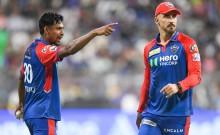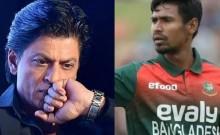
Ever since the advent of T20 into the game of cricket, there has been one voice expressed, primarily from former cricketers, about youngsters failing to prioritise what must always be the pinnacle of the sport - Test cricket.
The IPL, Big Bash and such T20 tournaments, it is feared, is only encouraging the young guns to concentrate on the shortest format of the game, while the importance of Test matches is slowly waning.
It is impossible to criticise anyone for wanting to play limited-overs cricket alone, considering the amount of money that one can make by playing just a single season of the IPL.
So, former Australian great Rodney Marsh, without taking credit for the idea, came up with a plan to reduce the impact of T20 cricket on youngsters - make it an over-30-only sport.
Marsh said making T20 accessible only for seasoned veterans, would, first of all, allow the young crop to concentrate on the basics and technique needed to succeed in Test cricket, while also acting as a bit of a rewarding retirement plan for the over-30s who want a few last hurrahs before leaving the sport.
"A wise man said to me not that long ago that you shouldn't be allowed to play Twenty20 cricket until you're 30," said Marsh, during a discussion after Mike Brearley's Bradman oration for 2013 in Melbourne. "And if you just stop and think about that, I don't think that's a bad solution.
"Maybe it should be the topping on the cake after your career, after you've fought your guts out for your country, after you've given everything to the real form of the game, then you get your rewards by playing the short form of the game.
"I'm not saying I agree with it necessarily, but I'm not saying I disagree with it. In fact I'm sitting on the fence."
Sharing the panel with Marsh were Brearley, Australia women's team captain Alex Blackwell and Greg Chappell, who spoke about the challenges that the modern cricketer faces trying to juggle all three formats of the game.
"It's a heck of a challenge," Chappell, now Cricket Australia's national talent manager, said. "The modern cricketer is challenged more than any other generation before with the different formats and the adaptability required to go across the formats.
"I think it will be very hard for most cricketers to play all three formats. It is a real challenge for young cricketers to try to develop their game to be chopping and changing so much and playing so much T20 cricket early on. What it requires to be a good hitter is very different to what it requires to be a good batter."
Brearley, during his Bradman address, touched upon the amount of support staff that one gets to see in cricket teams at the moment, saying because of that it takes away the ability of the captains, in particular, to make decisions based on their gut.
"The biggest change is the number of people around the dressing room, apart from players," former England skipper Brearley, now a qualified psychoanalyst, said. "When we came to Australia we had a manager, a physio, a scorer and maybe an assistant manager ... we didn't have a coach, and if we did it was the assistant manager who might do a bit of coaching.
"Sometimes I'd be worried he was getting someone to try to change at the beginning of a cricket tour when if he was going to be making that sort of change he should be doing it some other time.
"So I think the difficulty of having all these people around the dressing room, all of whom have got to do something, or be seen to do something, and for a captain and coach to manage that lot as well as the team seems to me a great difficulty.
"Cricket is much the same in the main central ways ... but the emphasis on computer information could turn people from a certain sort of spontaneity into something that becomes cut off and rather external.
"I heard the story of a young English bowler in a 50-over match who had no idea whatever about the tactical state of the game when they were fielding, he was only worried about that the right wrist was at exactly the right angle."








![Deepika Padukone–Ranveer Singh smooch, enjoy NBA date night in New York [Watch]](https://data1.ibtimes.co.in/en/full/826707/deepika-padukoneranveer-singh-smooch-enjoy-nba-date-night-new-york-watch.jpg?w=220&h=138)



